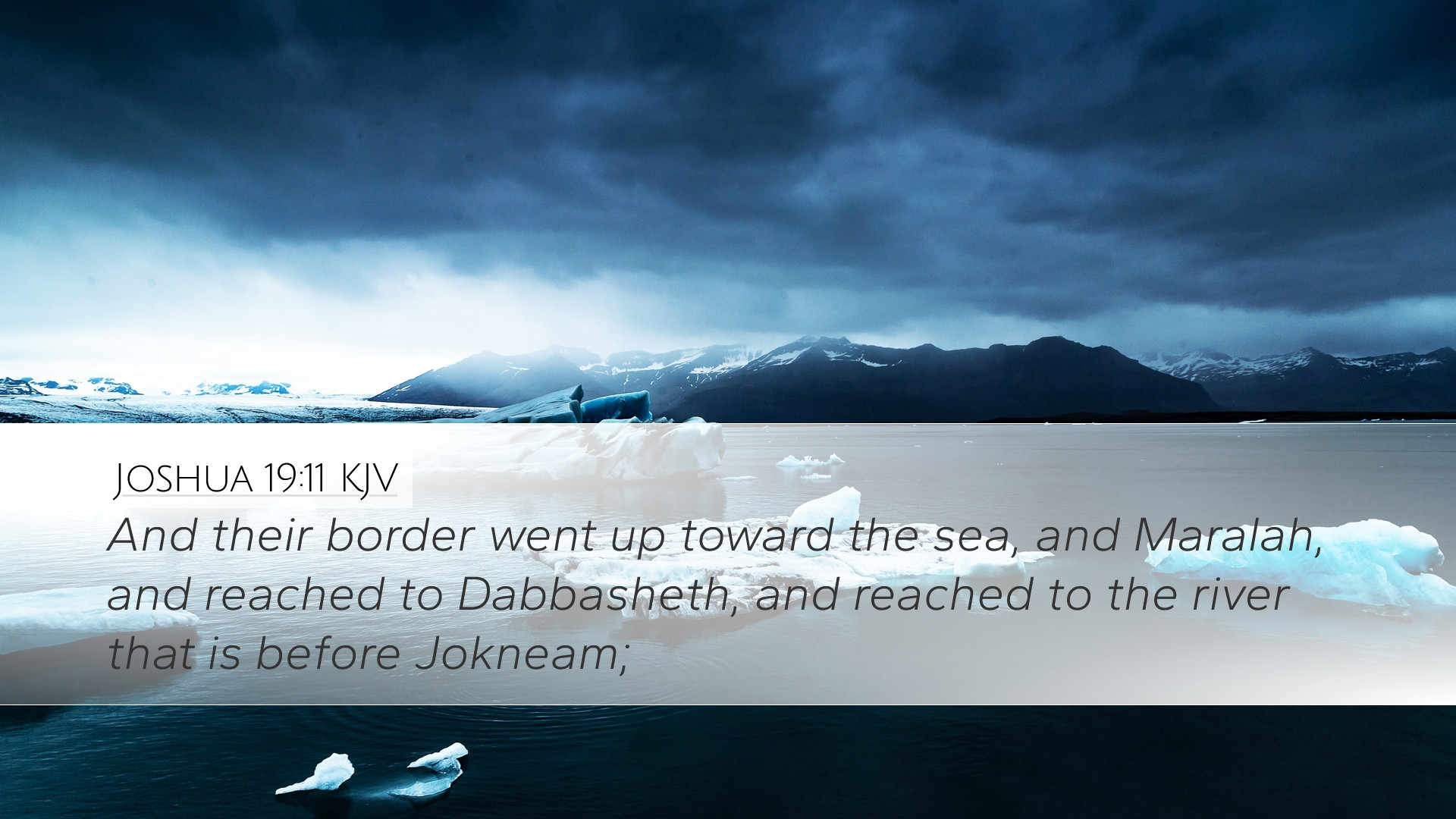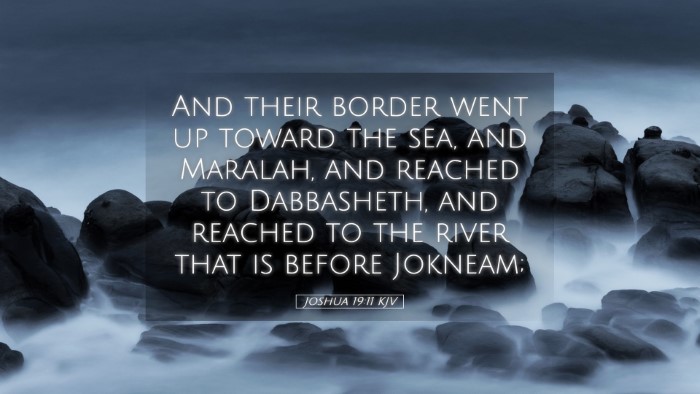Bible Commentary on Joshua 19:11
The verse Joshua 19:11 reads: "And the border went up toward the sea, and the border of the house of Ephraim, according to the cities of the sea, which the daughters of Zelophehad had. This region was noteworthy for the legacy of the daughters of Zelophehad, and their claim to inheritance within the broader context of Israel's history."
Contextual Background
In understanding Joshua 19:11, it is crucial to note the historical context of the allocation of land among the tribes of Israel. These allocations were made after the conquest of Canaan. The chapter focuses on the distribution of the land to the tribes of Israel, signifying God's faithfulness to His promises to His people.
Insights from Commentaries
Matthew Henry’s Commentary
Matthew Henry emphasizes the importance of the borders assigned to the tribes, explaining that borders represent both physical and spiritual delineations crucial for the identity of Israel. He notes:
- Identification of the Tribe: The passage highlights Ephraim's prominence in Israel, being one of the leading tribes.
- Significance of Inheritance: The legacy of Zelophehad's daughters is underscored, symbolizing God's provision for all His people, irrespective of traditional societal limitations.
- Geographical Importance: The mention of cities by the sea signifies a prosperous trade region and a location of strategic significance for Israel.
Albert Barnes’ Commentary
Albert Barnes provides a detailed geographical analysis of the region allocated to Ephraim. He explains:
- Topography and Borders: The boundaries of the land given to Ephraim are significant for understanding the socio-economic dynamics of ancient Israel.
- Spiritual Symbolism: The reference to the daughters of Zelophehad illustrates God's justice and inclusivity, showing how even those marginalized in society were given rights in His kingdom.
- Historical Context: The passage is set against the larger narrative of Israel's journey into the promised land and highlights God's faithfulness to His covenant.
Adam Clarke’s Commentary
Adam Clarke adds to the discussion by focusing on the theological implications of this verse within the wider narrative of the book of Joshua:
- Divine Allocation: Clarke stresses that the division of the land was an act of divine sovereignty, emphasizing that God controls the fates of nations and families alike.
- Inheriting the Promise: He notes that the daughters' claim signifies a new dimension of faith and inheritance within God's covenant community.
- Encouragement for Future Generations: This verse serves as a reminder to future generations of God's provisions and that they too have a place in His family.
Theological Reflections
This verse illustrates a profound truth about God's nature—He is a God who provides for and protects His people. This is a source of encouragement for believers, as it shows that God’s promises extend beyond mere physical land to include spiritual inheritance and identity within His kingdom.
Application for Today
The insights from Joshua 19:11 can be applied in various contexts:
- For Pastors: This passage can inspire ministry focusing on inclusivity and justice within the church, following the model of God's provision for all His people.
- For Students and Theologians: Analyze the implications of land inheritance in biblical theology, particularly regarding God’s promises and their fulfillment through history.
- For Bible Scholars: Engage with historical-critical methodologies to assess the socio-political dynamics at play during the drafting of these territorial borders.
Conclusion
Joshua 19:11 serves as a significant passage that highlights not only the historical but also the theological richness of God's dealings with His people. The legacy of the daughters of Zelophehad embedded within the borders of Ephraim reminds us that God's ways of providing for His creation continue to challenge societal norms while affirming the value and dignity of every individual within His plan.


